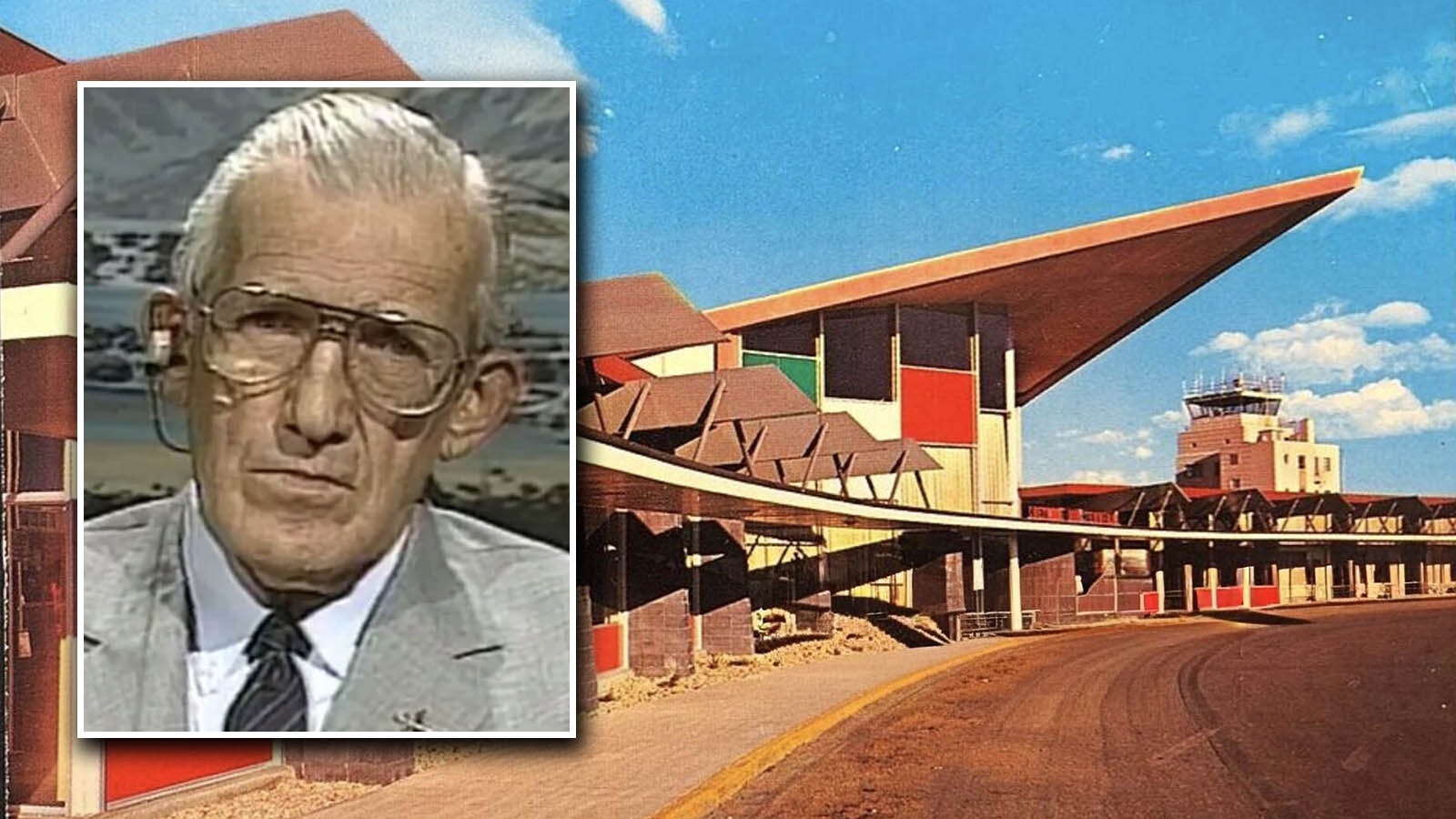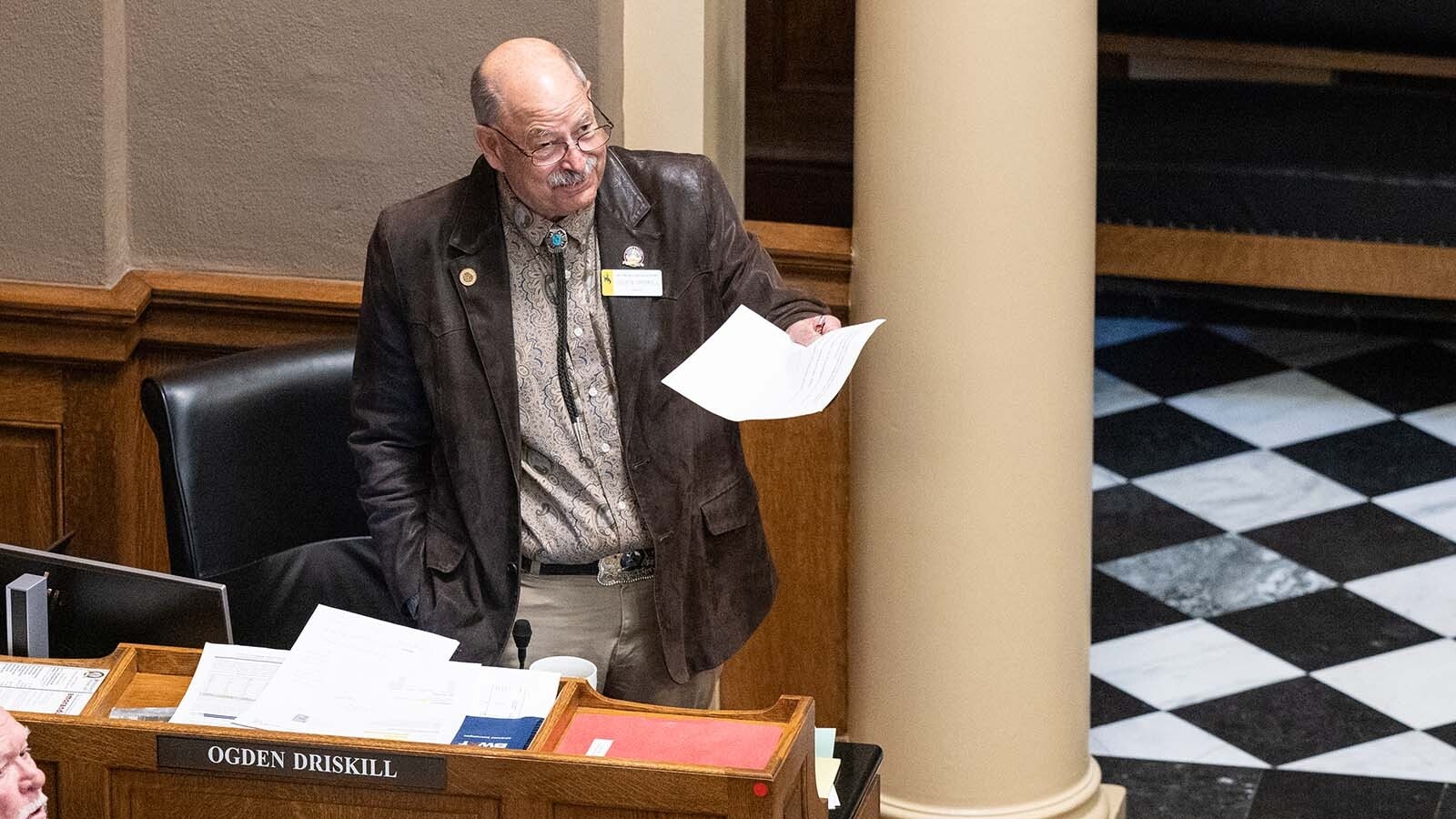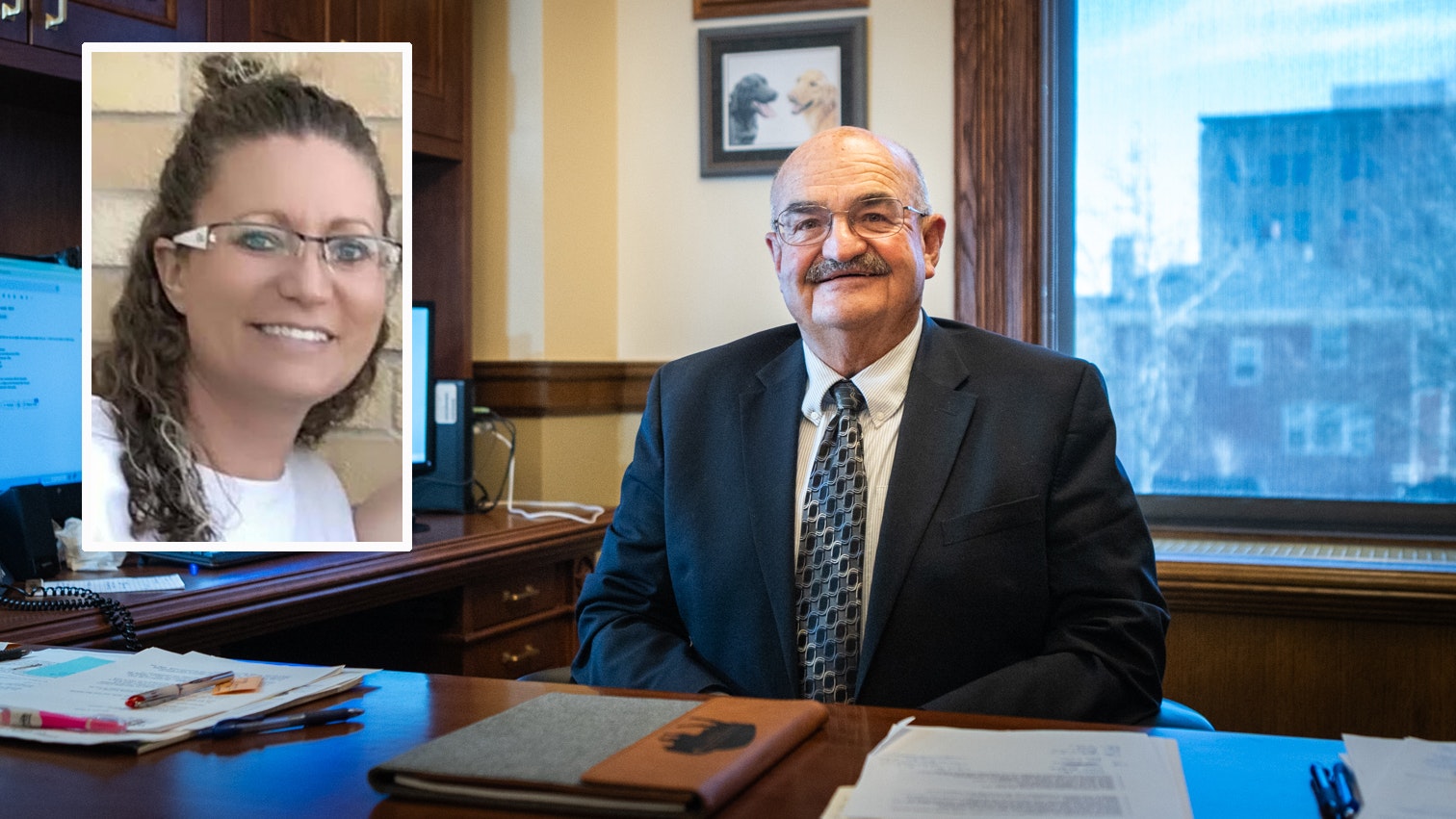Discontent over the federal government’s ownership of land in the West bubbled over this fall when Utah petitioned the U.S. Supreme Court to gain control over millions of acres of Bureau of Land Management land.
U.S. Rep. Harriet Hageman, Gov. Mark Gordon and 26 members of the Wyoming Legislature filed briefs in support of Utah’s fight last week and are pushing for the Supreme Court to take up the case.
If the high court decides to take up the case and rules in Utah’s favor, it could set an important legal precedent for how federal lands are managed moving forward.
The fight is sparking another question: If Utah wins, can it and other states like Wyoming handle managing all that extra real estate?
Hageman says yes, but others around Wyoming remain doubtful.
Is It Worth The Fight?
Detractors of the lawsuit say Utah has no chance and that legal precedent is clearly on the federal government’s side.
Examples brought up include a 1976 case that determined wild horses are allowed to be a protected species on federal lands and a 2016 ruling stating that local governments can’t dictate any regulations on federal lands.
“People may not like that, I get the fact people may not like the federal government coming in and bullying us, but that is in fact the constitutional black letter of the law that’s existed at least since 1890,” Casper attorney Ryan Semerad said. “There is a library of precedent that says to the contrary, that the federal government can absolutely possess property as any other landowner.”
Hageman told Cowboy State Daily on Tuesday she doesn’t view the lawsuit as a hail mary and sees it as a battle worth fighting.
“I don’t think our forefathers ever envisioned that the federal government would own this magnitude of real property across the country,” she said. “I think they always anticipated that the vast majority of real property would be in private hands or controlled by the states.”
Hageman also countered Semerad that the equal footing clause of the U.S. Constitution grants states equal powers to all other states, and that Congress has the right to dispose of real property owned by the federal government.
“The economic impact to these areas that have this major federal footprint has been astonishing,” she said. “It affects their ability to generate revenue for their schools, it affects their ability to have any kind of economic development.”
Utah’s lawsuit over 18 million acres of BLM land was years in the making, but is still unusual because it went straight to the U.S. Supreme Court to take up the case when lower federal courts are usually the first level step of the legal process.
“I don’t think they would have taken this step unless they thought this was a real, legitimate case that should be resolved by the Supreme Court, and I would imagine that they have the case law and facts to back them up,” Hageman said.
Political Theater?
Semerad, who has been fighting public lands issues in Wyoming since 2021, believes Wyoming is wasting its time and money with the Utah lawsuit.
Although Wyoming is not a party in the lawsuit and has simply expressed a position in the case, state money was spent crafting its brief and time expended that could have been used elsewhere, he said.
Semerad also believes the filing of these briefs represents much more political theatrics than actual problem solving.
“Every time government does something for no reason, it’s a waste of our money,” Semerad said. “I just look at this — it’s just posturing.”
Cowboy State Daily columnist Rod Miller, who worked on public lands issues for the Wyoming governor’s office from 1984-1994, agreed and said that “no one in Wyoming got unelected by bashing the feds” and “it’s a great way to get votes.”
Sagebrush Redux
The federal government runs 612 million acres of land across the country, most of that in the Western United States. Its ownership of national parks, forests, wilderness areas and monuments is not a question in the lawsuit, although the Wyoming legislators said they would like this topic explored as well.
What’s being specifically challenged is whether the BLM can indefinitely hold onto land without giving it a designation.
During the 1970s and the 1980s, a movement known as the Sagebrush Rebellion sprouted up that sought to bring major changes to federal land control, use and disposal policy in 13 Western states. Miller sees the Utah lawsuit as just another iteration of the movement.
“It comes back up every four years or so,” he said.
The Utah case is still new and only at a stage where the Supreme Court is considering hearing it or not. Because of this, Hageman wouldn’t speculate about what the specific impacts of the case would be if Utah wins, beyond its overall significance.
“I think it’s time for the Supreme Court to weigh in on this,” she said.
Wyoming Constitution Roadblocks
Even if Utah wins the lawsuit, it may be unlikely Wyoming could gain control of BLM land in its boundaries because of its own state constitution. Article 21, Section 26 of the Wyoming Constitution says that Wyoming is not entitled to federal lands within its borders until the right to and title of said lands is granted over to the Cowboy State.
Article 18, Section 1 states that if Wyoming receives federal land, it must immediately sell it at auction to the highest bidder.
Wyoming started as a territory in 1868 that was entirely owned by the federal government.
“It doesn’t make sense that we have some special kind of claim to repossess something we never possessed in the first place without a purchase,” Semerad said.
What Would Happen To Wyoming If Utah Wins?
If Utah wins the lawsuit and in the unlikely scenario federal lands were also returned to Wyoming, there are many questions about what would become of that public land.
Miller believes turning over federal lands to Wyoming would be a “f***ing disaster.”
Many environmental groups like the Wyoming Outdoor Council have warned that it would eventually get sold off to private interests. The state’s Board of Land Commissioners has shown a propensity to consider putting public land in private hands based on some of its decision making in the recent Kelly Parcel and Casper Mountain gravel pit cases.
Miller also warned that a public auction of these lands would likely result in wealthy out-of-staters like Jeff Bezos, Warren Buffett, George Soros and Elon Musk gobbling it all up.
“Do we want to deal with those people instead of the federal government?” Miller questioned.
Ronald Eagleeye Johnny, an Oregon attorney, told Cowboy State Daily the Utah lawsuit fails to address what would happen to land Native Americans believe they are entitled to own based on past broken treaties. He’s skeptical that even if Utah wins the lawsuit it will result in any land being given to the states or tribes.
“They took all of our good lands that they ranched and farmed on and left us the scraps,” Johnny said. “We’ve survived all these years, but most Native Americans have been relegated to the Democratic Party to live on welfare all their lives.”
Hageman said speculating about what would happen to these lands in the future is “fear mongering” and a distraction from the case at hand.
If all the lands remained public, it would be up to Wyoming to figure out how it would manage a significantly larger index of property. The BLM has a total budget of $1.7 billion for this year while Wyoming Game and Fish’s budget last year was around $90 million.
The idea that Wyoming would be the best steward of these lands touches a nerve with Semerad, who has no faith that the state has the capability to effectively manage that much public land. The BLM manages more than 18 million acres of public land in the Cowboy State, along with nearly 41 million acres of mineral claims.
“We don’t have the resources to manage this stuff unless we’re going to levy greater property taxes, impose an income tax, try to gin up a little extra severance (tax) from our extractive industries,” Semerad said. “None of this makes any practical sense.”
Miller agrees, and also expressed doubt that the feds would ever release mineral rights to the state of Wyoming.
“That’s where the federal government makes money,” he said. “They would be exceedingly reluctant to give that up.”
Another potential roadblock is the fact that U.S. Congress gets final decision making on what happens to federal lands.
The federal government already reimburses states for a percentage of the tax revenue they would have received on the federal land had they owned through a process known as Payments in Lieu of Taxes, which Hageman likes referring to as “Poverty in Lieu of Taxes” and “Pennies in Lieu of Trillions.”
She believes Wyoming would be up to the task of managing these lands, citing the catastrophic wildfires and prairie dog infestations that hit certain federal lands in Wyoming this summer.
“I have every belief and expectation that the state of Wyoming would be capable of properly managing these lands, I don’t have any doubt about that whatsoever,” Hageman said. “I have every reason to believe that we could properly manage these lands and do a much better job than the federal government does.”
Leo Wolfson can be reached at leo@cowboystatedaily.com.





